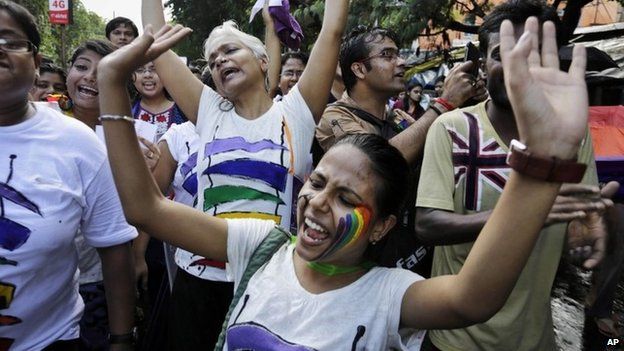India's Delhi University acknowledges transgender students
- Published

Delhi University has acknowledged transgender students for the first time by introducing a column for a third gender in its application forms.
The university said it would accept all nine transgender applicants who had enrolled for postgraduate programmes, The Times of India reported.
Earlier in April, India's Supreme Court recognised transgender people as a third gender, in a landmark ruling.
Activists have praised the move calling it a step in the right direction.
Prior to this transgender students were forced to register as either male or female.
A university official said the policy would be extended to undergraduate courses in the next academic year.
"We had planned to start transgender admissions in undergraduate courses from this year but could not do so due to administrative reasons. From 2015-16 academic session, we will be introducing the third gender option in centralised admission forms and also make necessary policies for their admission," The Times of India quoted Delhi University registrar Alka Sharma as saying.
Lesbian, gay, bisexual and transgender (LGBT) activists have welcomed the move and said it would help integrate the community into the mainstream.
"It a step in the right direction. It really empowers people and makes them feel they are part of mainstream life. But there has to be a sustained campaign to understand transgenders, their issues and sensitise the society," said Anjali Gopalan of the Naz Foundation.
According to one estimate, India has about two million transgender people, but campaigners say they live on the fringes of society, often in poverty, ostracised because of their gender identity. Most make a living by singing and dancing or by begging and prostitution.
Rights groups say they often face huge discrimination and so far have been forced to choose either male or female as their gender in most public spheres.
In 2009, India's Election Commission took a first step by allowing transgenders to choose their gender as "other" on ballot forms.
- Published23 April 2014
- Published15 April 2014
- Published12 September 2012
- Published16 July 2012
- Published30 January 2010
- Published5 March 2008
- Published13 November 2009